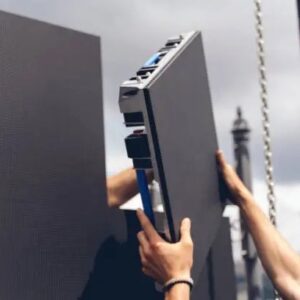Energy-Efficient LED Displays: Lowering Operational Costs Without Sacrificing Impact
In the modern digital signage era, businesses demand more from their display systems. They want bold, clear visuals—but without skyrocketing power bills. As a result, energy-efficient LED poster screens have become the go-to solution across industries.
This article explores how these modern displays reduce long-term operational costs, optimize power usage, and still deliver eye-catching visual performance.
1. The Energy Challenge in Traditional LED Displays
Traditional LED screens, especially large-format outdoor models, consume vast amounts of electricity. Whether in 24/7 retail windows or stadium banners, power draw becomes a substantial part of operational expenses.
High power consumption also leads to:
-
More frequent component wear
-
Increased cooling requirements
-
Unsustainable energy usage over time
However, energy-efficient LED poster screens solve these issues while enhancing visual performance.
2. Technology Behind Energy-Efficient LED Poster Screens
The latest generation of LED poster screens incorporates several innovations:
-
Common Cathode Technology: It reduces power waste by supplying precise voltage to each LED color channel.
-
High-Efficiency Power Drivers: Smart control boards adjust power use based on content brightness and ambient conditions.
-
Low-Current High-Brightness LEDs: Deliver the same luminance using lower current draw, maintaining vivid images.
Together, these innovations reduce energy use by up to 40% compared to conventional LED displays.
3. Lower Heat, Longer Lifespan
Reducing energy input also reduces heat output. This translates into longer component life, fewer maintenance cycles, and improved display stability.
For example:
-
Fanless LED cabinets reduce mechanical failure points.
-
Cooler operation environments prevent pixel degradation.
-
Fewer cooling cycles extend the lifespan of internal circuits.
In retail chains and transport hubs, this results in less downtime and lower service costs.
4. Power Efficiency Without Losing Brightness
Many assume lower power means lower brightness. That’s no longer true. Today’s energy-efficient LED poster screens use advanced chipsets that allow high brightness at low voltage.
These innovations include:
-
Pulse Width Modulation (PWM): Adjusts brightness without extra heat
-
Adaptive Luminance Control: Automatically dims or boosts brightness based on lighting conditions
-
HDR Compatibility: Produces richer contrast using smarter pixel mapping
As a result, businesses can deploy LED signs in bright atriums or outdoor plazas without sacrificing visibility.
5. Dynamic Content with Minimal Power Spikes
Not all content consumes the same power. For example, white backgrounds or full-motion video are more current than static dark images.
Modern energy-efficient LED poster screens use:
-
Real-time Power Load Balancing
-
Zone-Based Content Rendering
-
Smart Color Distribution Algorithms
This ensures high-impact animations can run without unnecessary energy waste. It also prevents spikes that could harm power supplies or inflate utility bills.
6. Sustainability: Eco-Conscious Display Strategy
More brands are now adopting sustainability goals. Installing low-energy LED poster screens aligns with:
-
ESG (Environmental, Social, Governance) commitments
-
Corporate carbon footprint reduction
-
Green building certifications (LEED, BREEAM)
These LED solutions help clients meet energy compliance standards while also contributing to their green branding narrative.
7. Cost Savings Over Time: A Real-World Example
Consider a retail chain using 100 indoor poster screens. By switching to energy-efficient models:
-
Annual electricity use drops by 35%
-
Cooling costs reduced by 15%
-
Display lifespan increases by 25%
Over five years, this results in tens of thousands in operational savings, not to mention reduced replacement and repair costs.
8. Versatile Applications Across Sectors
The impact of energy-efficient LED poster screens goes beyond cost. Their slim form factor and low heat output allow flexible deployment in:
-
Luxury retail and fashion storefronts
-
Transportation terminals and wayfinding zones
-
Corporate lobbies and event booths
-
Hospitality and hotel digital displays
These screens provide vibrant messaging while keeping power demands minimal.
9. Scalability for Multi-Site Management
With cloud-based CMS (Content Management System) platforms, operators can control thousands of poster screens across multiple sites—without worrying about power overloads or local cooling limitations.
Remote power scheduling, ambient sensor feedback, and power usage logs help large networks:
-
Forecast energy expenses
-
Optimize screen uptime
-
Plan eco-conscious ad rotations
10. Future Innovations in Power-Saving Displays
Research continues to push efficiency even further. Trends include:
-
Mini LED and Micro LED adoption
-
Solar-powered outdoor LED posters
-
Transparent low-power LED glass screens
-
Smart motion-activated signage
These developments ensure the next generation of LED poster screens will become even more efficient, adaptable, and cost-effective.
✅ Conclusion: Maximum Impact, Minimum Consumption
The energy-efficient LED poster screen solutions now deliver what every brand needs—visual power without operational strain. They combine:
-
Lower power bills
-
Reduced maintenance needs
-
Superior brightness and clarity
-
Long-lasting durability
-
Environmental compliance
For any business aiming to maximize display ROI while promoting sustainability, these LED solutions are a smart, future-proof investment.




